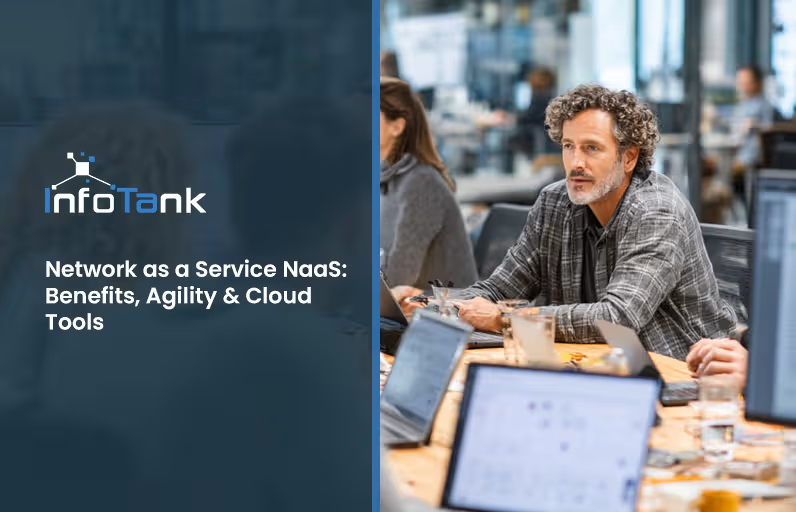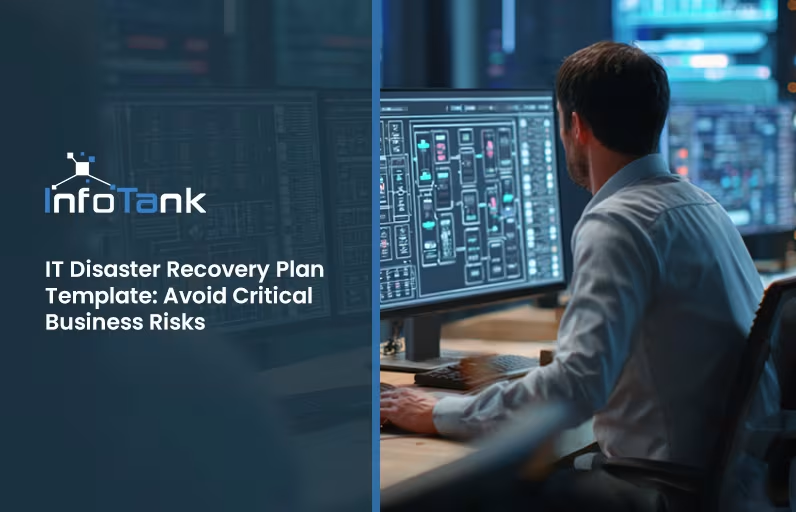
Top 5 Essential Computer Hardware You Should Have for Your Business
In today's fast-paced business world, selecting the right computer hardware for your company can be the difference between success and failure. But first, let's understand what is a computer hardware is. Computer hardware refers to the physical components of a computer system, including desktops, laptops, monitors, keyboards, mice, and networking devices. These components work together to help your employees complete tasks and keep your business running smoothly. Hardware decisions have a direct impact on your team's productivity, efficiency, and overall business success. In this blog post, we'll explore the top 5 essential computer hardware components that you should have to run a successful business, as well as the benefits of choosing the right hardware. We'll also share some valuable tips on selecting the best hardware for your unique needs. Let's dive in!

1. High-Performance Desktops or Laptops
When it comes to your employees' primary work tools, you can't skimp on quality. Investing in high-performance desktops or laptops is essential to ensure your team can complete tasks quickly and efficiently. When selecting a computer, consider factors like processing power, RAM, and storage capacity to find the best fit for your business needs.
Choosing the right desktops or laptops doesn't just improve productivity – it also reduces downtime caused by slow or outdated hardware. A study by Intel found that old computers can cost businesses up to 42 hours of lost productivity per employee per year. So, upgrading to modern, high-performance computers is not only a smart investment, but it's also essential for your bottom line.
2. Reliable Networking Components
A stable and secure internet connection is the backbone of any modern business. To ensure smooth communication and data transfer, invest in reliable networking components like routers, switches, and modems. These computer hardware parts play a critical role in connecting your business's devices and enabling seamless collaboration between your team members.
A well-functioning network not only reduces downtime but also improves efficiency, allowing your employees to focus on what they do best. In fact, according to a Cisco study, businesses can save up to 2.5 hours per employee per week with a strong network infrastructure. So, ensuring that your network components are up to date and reliable is crucial for your business's success.
3. Robust Backup and Storage Solutions
In today's data-driven world, having a solid data backup and storage system in place is non-negotiable. Network Attached Storage (NAS) devices, external hard drives, and cloud-based storage solutions are some popular options for businesses to store and protect their critical information.
Investing in a robust backup and storage system safeguards your data against potential loss due to hardware failure, accidental deletion, or cyber threats. The peace of mind that comes with knowing your data is secure is invaluable, and easy data retrieval can save your business valuable time in the event of a disaster. According to a study by the University of Texas, 94% of companies that suffer a catastrophic data loss do not survive, making it essential to prioritize data protection.
4. Essential Computer Hardware Components: Quality Monitors and Ergonomic Peripherals
High-quality monitors and ergonomic peripherals, such as keyboards and mice, are essential for employee comfort and productivity. A quality monitor can reduce eye strain and make it easier to focus on work, while ergonomic peripherals help prevent repetitive strain injuries and other health-related issues.
By investing in quality monitors and ergonomic peripherals, you're not only enhancing your team's productivity but also increasing employee satisfaction. A study by Fellowes found that 93% of employees reported increased workplace satisfaction when provided with ergonomic equipment. In the long run, prioritizing employee well-being can lead to higher retention rates and a more engaged workforce.
5. Uninterruptible Power Supply (UPS) Systems
Power fluctuations and outages can wreak havoc on your business operations, making uninterruptible power supply (UPS) systems an essential piece of computer hardware. By providing backup power during outages or fluctuations, UPS systems protect your hardware investments and prevent data loss.
Selecting the right UPS system depends on your power requirements and runtime needs. Investing in a UPS system not only safeguards your business against unexpected power issues but also reduces downtime caused by such events. According to a recent study by the Ponemon Institute, the average cost of a data center outage in the United States is $740,357. While not every business has a data center, this figure underscores the importance of protecting your hardware and data from power-related disruptions.
Tips for Choosing the Right Computer Hardware for Your Business
Selecting the best computer hardware for your business can be a daunting task, especially with the myriad of options available in the market. To make the process easier and ensure you make informed decisions, here are some tips to guide you:
- Assess Your Business Needs: Before diving into hardware purchases, take the time to understand your business's unique requirements. Consider factors such as the type of work your employees do, the software they use, and your company's growth plans. This will help you identify the hardware components that are most critical for your business.
- Set a Realistic Budget: While it's essential to invest in quality hardware, you also need to work within the constraints of your budget. Allocate funds for each category of hardware and prioritize spending on the components that will have the most significant impact on your business operations. Remember, it's better to invest in quality hardware upfront than to deal with the consequences of cutting corners down the line.
- Research and Compare Brands: Not all hardware is created equal, so it's crucial to research and compare different brands and models before making a decision. Read reviews, consult industry experts, and gather recommendations from peers in your field. This will help you identify the best products and brands for your specific needs.
- Plan for Scalability: As your business grows, your hardware needs may change. Ensure that the computer hardware components you choose can be easily upgraded or expanded to accommodate your future requirements. This will save you time and money in the long run, as you won't need to replace entire systems when you outgrow them.
- Consider Support and Warranty Options: Hardware malfunctions are inevitable, so it's important to have a plan in place to address them. When purchasing hardware, consider the support and warranty options provided by the manufacturer. Opt for companies that offer responsive customer service and comprehensive warranties to ensure your hardware investments are protected.
- Stay Updated on Industry Trends: Technology evolves rapidly, and it's essential to stay informed about the latest developments in the computer hardware industry. Follow industry news, attend trade shows, and participate in online forums to keep up-to-date with new product releases and emerging trends. This will help you make more informed decisions when it's time to upgrade or expand your hardware infrastructure.
By following these tips, you can make more informed decisions about the computer hardware components you invest in for your business, ensuring that you choose the right tools for success.

Conclusion
In conclusion, the top 5 essential computer hardware components for businesses are high-performance desktops or laptops, reliable networking components, robust backup and storage solutions, quality monitors and ergonomic peripherals, and uninterruptible power supply systems. By choosing the right hardware, you'll not only improve productivity and efficiency but also ensure the long-term success and growth of your business. Remember, investing in quality hardware today will save you time, money, and headaches down the line. So, make sure you prioritize your hardware needs to set your business up for success.



